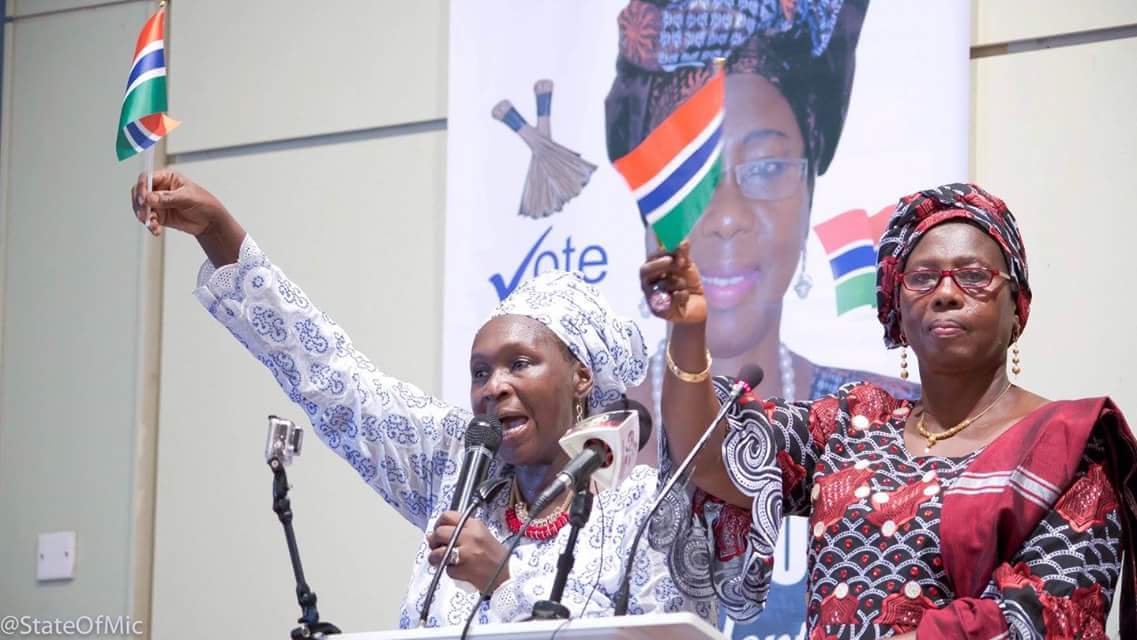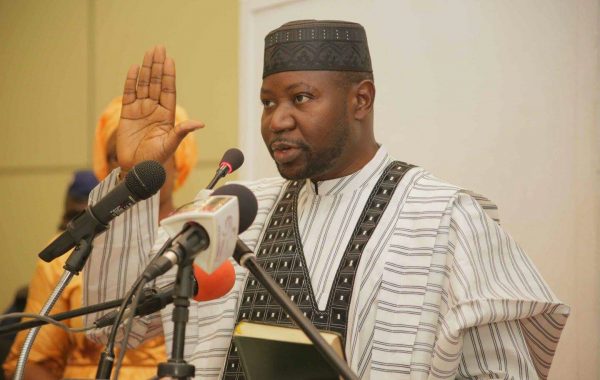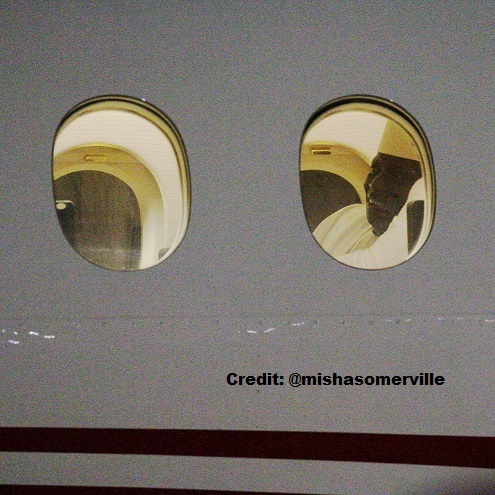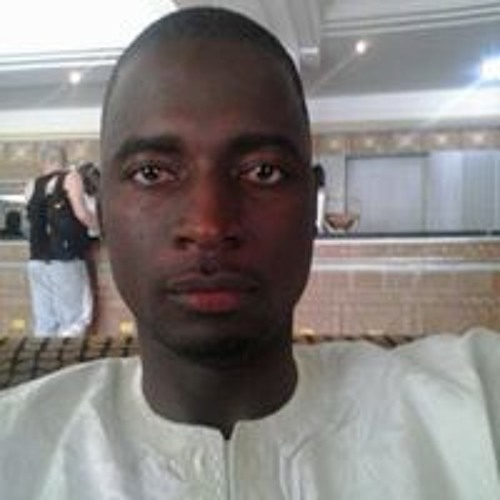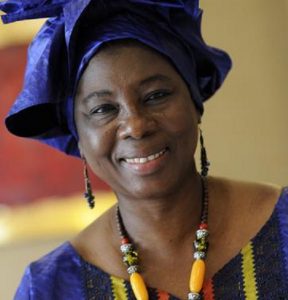
(JollofNews)– Dr Isatou Touray is on the campaign trail. Over the coming 15 days, the 61-year-old women’s rights activist and academic will cover hundreds of miles, bouncing over rutted rural roads and through narrow lanes in crowded cities, addressing rally after rally.
Most will be small affairs on scrubby soccer pitches in villages or supporters’ yards. A few will be joyous, as political meetings in Africa often are. But most will be restrained, with fear of the present as powerful as any hope for change in the future.
Few policymakers in the west have ever paid much attention to the west African state of the Gambia, a country of only two million inhabitants with little strategic importance and no major resources. Few of the 160,000 tourists drawn to the Gambia’s beaches last year were interested in local politics either.
But the Gambia, a former British colony, is facing a critical test. Touray and the other politicians in the newly formed coalition of opposition parties are seeking to unseat President Yahya Jammeh, who has ruled the Gambia with an iron fist since taking power, aged 29, in a military coup in 1994.
In recent months, as election day on 1 December has approached, Jammeh has unleashed a wave of repression. “I am worried about my safety and about my supporters too. We are taking a calculated risk. But who is going to change Gambia if not the Gambians?”, Touray, who was standing as an independent until joining forces with other opposition factions last week, told the Observer.
The danger is very real. In recent years Jammeh has relied on brutal security agencies to stifle growing dissent. Earlier this year a series of protests led to the detention of more than 90 opposition activists and supporters. One prominent opposition politician, a father of nine, was beaten to death in custody. His body has not been returned to his family. Thirty, including the head of the biggest opposition party, were given three-year jail sentences. Many remain in jails where abuse is systematic.
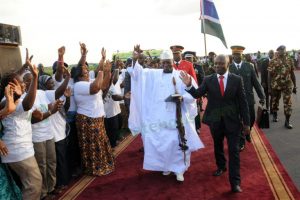 The detentions continue. Last week the head of the Gambian state TV and radio services was arrested after images showing substantial crowds of opposition supporters were broadcast, dissidents have said.
The detentions continue. Last week the head of the Gambian state TV and radio services was arrested after images showing substantial crowds of opposition supporters were broadcast, dissidents have said.
Jim Wormington, a west Africa expert at campaign group Human Rights Watch, described Touray as a “really courageous woman who is putting herself at great risk”.
The president, who has described the opposition as “vermin” who will be “buried nine feet under the ground”, has brushed aside criticism from the European Union, the United Nations, the UK and other African states. “People die in custody or during interrogations, it’s really common … No one can tell me what to do in my country,” he told one interviewer earlier this year.
Elections are held every five years in the Gambia. Jammeh’s Alliance for Patriotic Reorientation and Construction (APRC) has won every one since 1996. This time Touray believes that he will lose. “We are all campaigning to call on the population to ensure that there is an overwhelming majority. The possibility of rigging is there, so we want to make sure there is no doubt who has won,” she said.
Experts believe that the coalition’s chances of success are slim, however. Alex Vines, head of the Africa programme at Chatham House, the London-based geopolitical thinktank, said opposition figures were brave but were likely to be disappointed. “There is no chance of an upset. Jammeh will be re-elected and be west Africa’s longest-serving leader,” Vines said.
Jammeh has also proved one of the most mercurial heads of state on the continent. His mix of pan-Africanist rhetoric and resurgent Islamic identity – combined with an increasingly urgent need for funds as the economy falters badly – has led to policy choices which confound observers.
“There is no ideological or diplomatic basis, no rationale. Policy is driven by his own idiosyncrasies,” said Sidi Sanneh, a former foreign minister and dissident who lives in the United States.
The list of erstwhile backers of the Gambia is long; it includes Libya, Taiwan and Iran. Many have been alienated by a series of unpredictable efforts to switch allies. Relations with neighbouring Senegal are poor, and the country is increasingly isolated.
In 2013 Jammeh withdrew the Gambia from the Commonwealth, describing it as a neocolonial institution. Aid from the EU has been cut over concerns for human rights. A key trade agreement with the US has been abrogated, and Jammeh has also withdrawn the Gambia from the international criminal
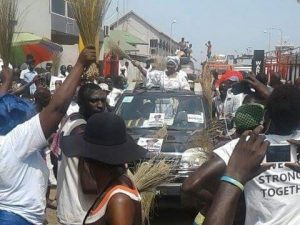
court, arguing that the institution is biased against Africans.
Last December the president declared the country an Islamic republic – making it Africa’s second, after Mauritania. Analysts say the move had two aims: to bolster domestic support in a country which is 90% Muslim, and to attract new backers among wealthy states in the Middle East. So far, the strategy has met with little success on either count.
Jammeh has also shown himself committed to fighting climate change. A significant rise in sea levels could flood much of the country, and is already affecting tourism.
After languishing in geopolitical obscurity for decades, a wave of refugees from the Gambia has focused more attention on the country. The combination of repression and poverty has driven tens, possibly hundreds, of thousands of young people out of the country in recent years, many heading across the Sahara to the Mediterranean coast in a desperate bid to start new lives in Europe.
The route, known locally as “the back way”, is extremely dangerous, with many perishing in the Sahara or during the hazardous sea crossing.
One recent casualty was Fatim Jawara, the teenage goalkeeper of the Gambia’s national women’s football team, who drowned in a shipwreck while trying to reach Italy. Jawara had told her family that she wanted to “follow her destiny” and play for a major European club “whatever the risks”.
Last week a famous Gambian wrestler drowned in another shipwreck. The only way to stem the exodus was change, said Touray.
“We need to convince our young people to remain. But there are no jobs, there is abuse, there is no hope … Gambia is going to change for sure. We need a vanguard for change. We know it is dangerous, but … if we do not stand up, who will?”

